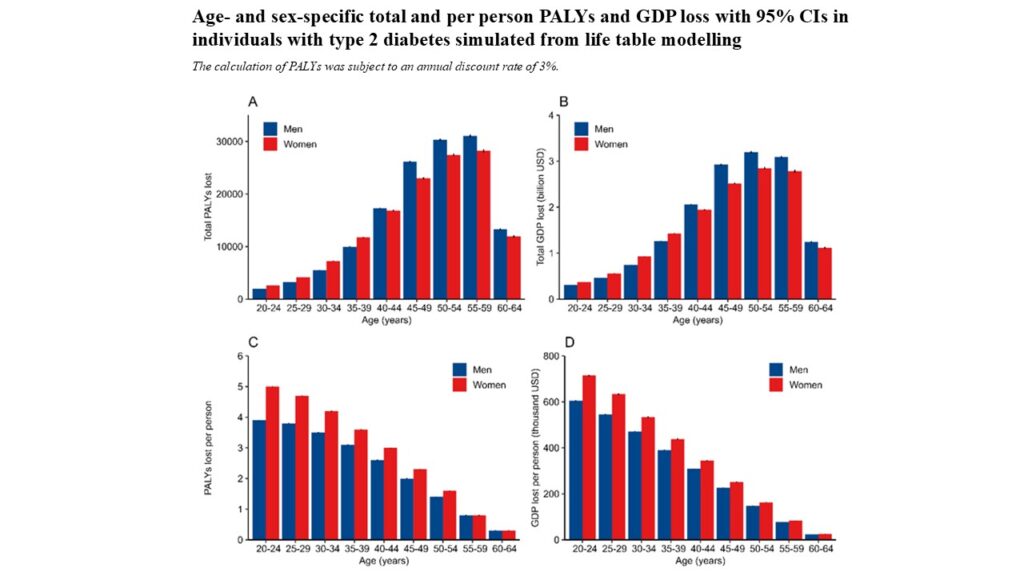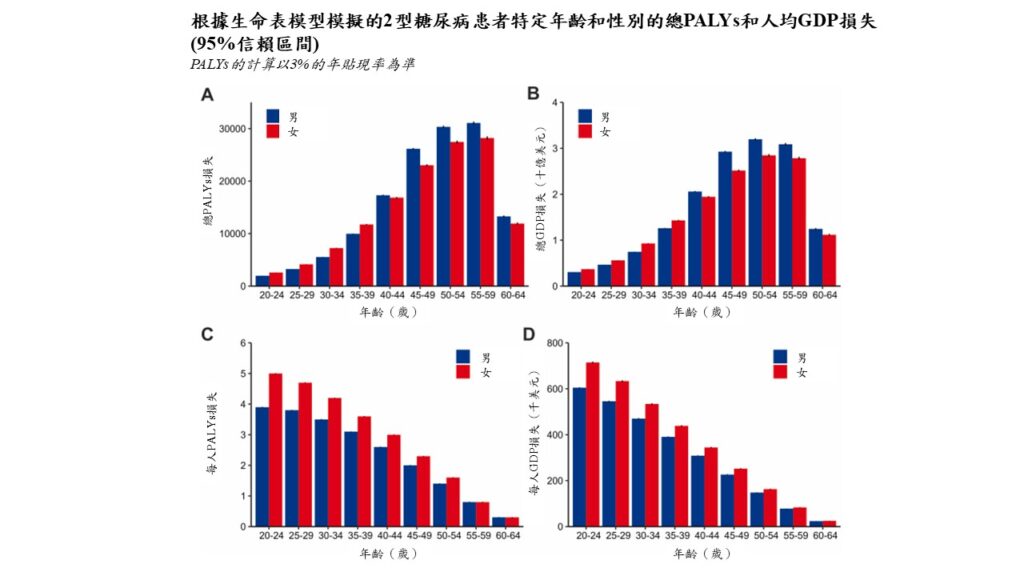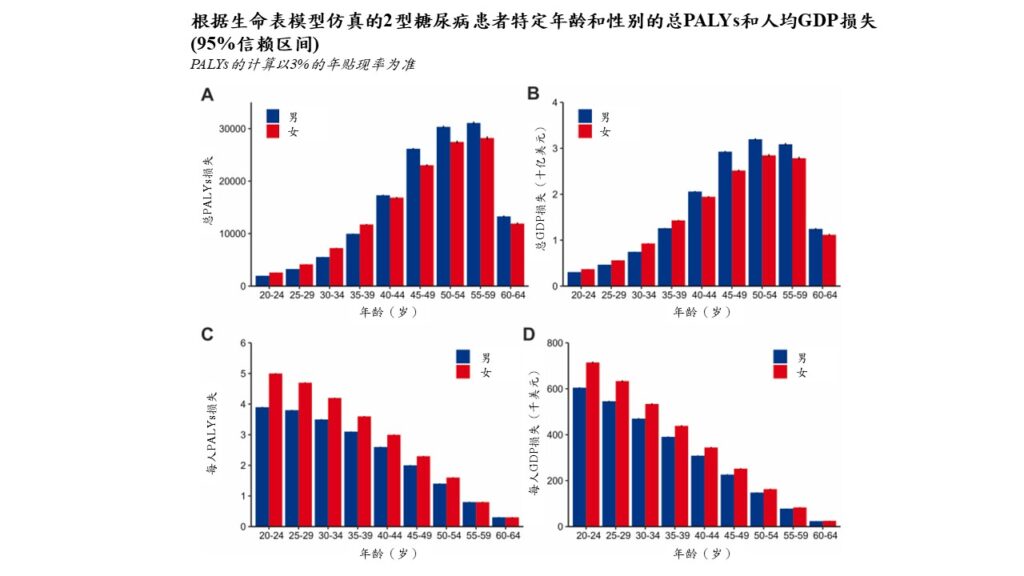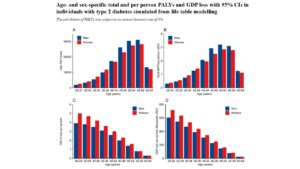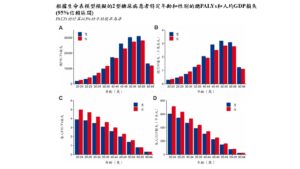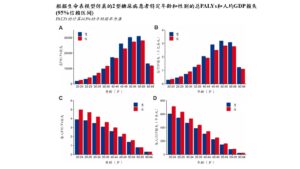CUHK
News Centre
CUHK study discovers substantial productivity and economic losses due to type 2 diabetes in Hong Kong, particularly in young individuals
A new study led by researchers from The Chinese University of Hong Kong (CUHK)’s Faculty of Medicine (CU Medicine) has discovered marked reductions in productivity related to diabetes, especially in young individuals, with substantial economic costs to Hong Kong. The findings have been published in The Lancet Regional Health – Western Pacific.
Type 2 diabetes in young people is on the rise and can lead to recurrent hospitalisation, multiple disabilities and premature death. Apart from high medical costs, young-onset diabetes can lead to productivity losses during the prime of people’s lives.
In a population-based modelling study, the CUHK Diabetes Research Group studied 257,280 working-age individuals (aged 20-64 years) with type 2 diabetes in Hong Kong in 2019 (please refer to Table 1 in the appendix for details), and simulated the economic impact of diabetes until the retirement age of 65. They used a novel health metric known as productivity-adjusted life years (PALYs) to quantify diabetes-related productivity loss due to sick leave, under-performance during work, dropping out of the labour force and premature death, derived from international studies, and translated them to loss of Gross Domestic Product (GDP) within Hong Kong.
Compared to their peers without diabetes, the loss of PALYs due to type 2 diabetes was 17.0% in men and 27.8% in women during their working lifetimes. These figures translated to an estimated total GDP loss of HK$119 billion (US$15.3 billion) in men and HK$113 billion (US$14.5 billion) in women. This impact was particularly stark in younger individuals. The per-person PALYs lost due to diabetes in both sexes aged 20-24 were 15 times higher than in those aged 60-64 (please refer to Figure 1 in the appendix for details); while their per-person GDP loss during their working lifetimes compared to those aged 60-64 years was 25-fold greater.
“Productivity loss is a frequently overlooked economic consequence of chronic illnesses like diabetes, as most attention has traditionally focused on direct healthcare costs,” said Professor Andrea Luk On-yan, Professor in the Department of Medicine and Therapeutics at CU Medicine and senior author of the study. “Our findings shed light on the broader societal costs associated with diabetes and reinforce the need to prioritise prevention of diabetes in our workforce.
“Young individuals are in their most productive years and diabetes prevents them from unleashing their full personal development potential. We need to rethink how to support younger individuals living with diabetes, not just medically but also through workforce policies and social support, to help them stay healthy and economically active.”
“Young-onset diabetes is a highly complex condition due to genetic and non-genetic causes,” added Professor Juliana Chan Chung-ngor in the Department of Medicine and Therapeutics at CU Medicine and Founding Director of the Hong Kong Institute of Diabetes and Obesity. “Many young individuals are not aware that they are at risk due to factors such as family history, early life course adversity and lifestyle, and miss the opportunity of early intervention, which will have long-term benefits. Population surveys in Hong Kong have shown that a substantial proportion of young people with diabetes remain undiagnosed, highlighting the urgent need to raise awareness and improve early detection.”
“This is the first study in Hong Kong that has used PALYs to quantify the indirect costs of diabetes at the population level,” said Professor Wu Hongjiang, Assistant Professor in the Department of Medicine and Therapeutics at CU Medicine and first author of the study. “Our group has reported the burden of young-onset diabetes, with a high risk of complications and premature death. Our new findings underline the pressing need to find solutions to mitigate the negative impacts of this global phenomenon. In an ageing society with a low birth rate, the reduced productivity, high medical costs and shortened life expectancy of young individuals with diabetes will severely hit our healthcare system and economy. These findings are a wake-up call to the global community that a multidimensional, coordinated strategy, including public health, workforce policies, targeted screening and personalised treatment, is urgently needed to support these vulnerable individuals and their families.”
The study’s DOI is: 10.1016/j.lanwpc.2025.101585.





